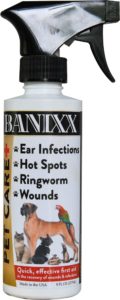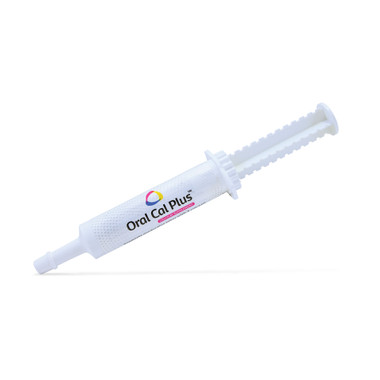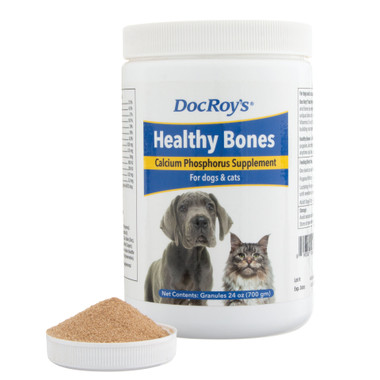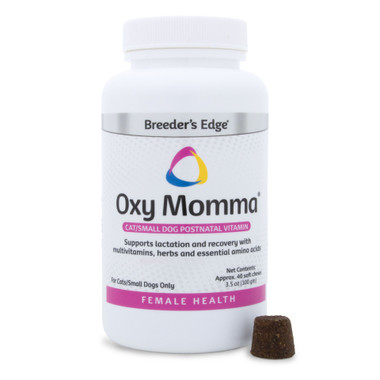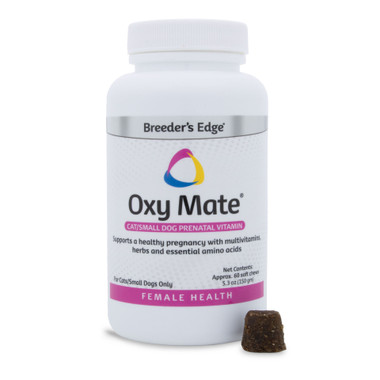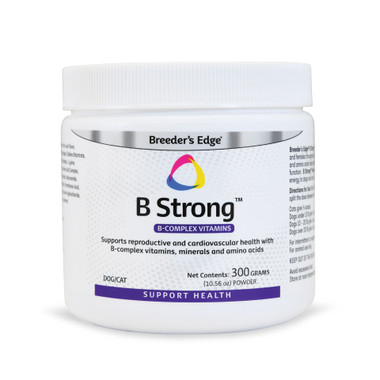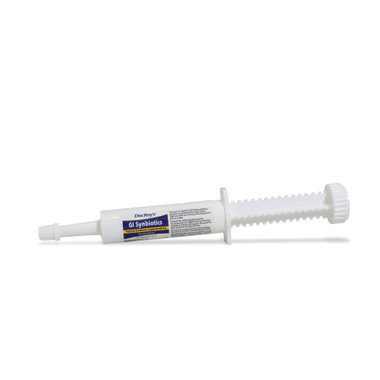Do Dog Joint Supplements Actually Work?
Estimated 0 min read

Which joint supplement is best for your dog?
Navigating the world of canine health can often feel like a complex puzzle. This is especially true when it comes to understanding joint supplements for dogs. With a plethora of options and opinions, it’s crucial to have clear, reliable information.
This exploration into the efficacy of joint supplements is grounded in scientific research and veterinary insights, aiming to provide clarity and guidance.
Whether you’re a seasoned dog owner or new to the world of pet care, our discussion offers valuable knowledge. With this blog you’ll be able to make informed decisions for your dog’s joint health and overall well-being!
Quick Facts About Dog Joint Supplements
- Joint supplements like Glucosamine, Chondroitin, and Omega-3s vary in effectiveness; and are best used as part of a comprehensive health approach.
- Quality and dosage of supplements are crucial. Likewise, only buying from reputable brands and using veterinarian consultation are recommended.
- Supplements take time to show effects. Patience and regular monitoring of behavior are essential to measure results.
Understanding Dog Joint Problems

Older dog with joint issues.
As you know, joint health is a critical component of a dog’s overall wellness. Moreover, particularly as they age or if they are predisposed to certain conditions, it can be an issue. And so, understanding the science behind joint problems in dogs is essential for pet owners looking to maintain their pet’s health.
Accordingly, any Inflammation of joints characterizes arthritis, and becomes a widespread condition in dogs. This condition will progress and affect a significant number of dogs, especially as they age. The primary trigger for arthritis is the deterioration of joint cartilage, which is the joints’ “cushions” at the ends of their bones. As cartilage wears down, it leads to painful bone-on-bone contact. Not only do older dogs suffer from arthritis; younger dogs can also develop this condition.
Hip dysplasia, another common joint weakness in dogs, is a developmental disorder that results in a malformed hip joint. This leads to looseness within the joint, causing abnormal wear on the cartilage and the joint as a whole. Often inherited, hip dysplasia is more common in larger breeds and can lead to arthritis over time. As a result of this dysplasia, the joint degrades even more.
Given these challenges, joint supplements are garnering attention as a potential aid in improving joint health in dogs. These supplements typically contain ingredients like Glucosamine, Chondroitin, and Omega-3 fatty acids.
Understanding the Science Behind Canine Joint Supplements
In fact, these supplements for dogs are now a focal point in the discussion of managing canine joint health. They typically contain a blend of ingredients that are beneficial for canine joints, including Glucosamine, Chondroitin, and Omega-3 fatty acids.
Glucosamine

Dog given joint supplement.
Glucosamine, a naturally occurring compound, is a fundamental building block of cartilage. In the realm of joint supplements, it’s aim is to stimulate cartilage growth and repair. This is crucial in conditions like arthritis, where cartilage degradation leads to joint pain and reduced mobility.
Glucosamine is often paired with Chondroitin, a naturally occurring substance, which is thought to inhibit destructive enzymes in the joint cartilage. Together, these components are believed to support the maintenance and repair of joint cartilage. As a result, there is the potential to slow the progression of joint deterioration.
Omega-3
Finally, Omega-3 fatty acids, particularly those derived from fish oil, are another key ingredient. Known for their anti-inflammatory properties, Omega-3s are thought to play a role in reducing joint inflammation and pain.
Despite the popularity of these supplements, the scientific community presents a mixed view of their effectiveness. Some studies do suggest they are beneficial in improving joint function. While others indicate a minimal improvement. This inconsistency makes it challenging to definitively ascertain the effectiveness of joint supplements across all cases.
On the other hand, many dog owners are indeed turning to them to manage their dog’s joint health. This approach often also encompasses weight management, regular exercise, and anti-inflammatory medications or other therapies.
Do Dog Joint Supplements Actually Work?

Dog joint supplements can reduce inflammation and increase flexibility.
The debate over the effectiveness of joint supplements in dogs involves a complex interplay of scientific research and veterinary insights.
Cornell University’s Vet College highlights that they can rebuild cartilage, increase flexibility, and reduce inflammation. Cornell’s Dr. Christopher Frye notes that most are safe and may help reduce the progression of osteoarthritis. He emphasizes the potential preventive benefits of these enhancements but also the necessity of accurate diagnosis.
A study referenced by Cornell’s Dr. Matt Brunke assessed 35 dogs’ responses with osteoarthritis to glucosamine hydrochloride and chondroitin sulfate. This study found significant improvements in pain scores and weight-bearing by day 70. However, the onset of efficacy was slower compared to the control drug, carprofen.
Role of ASU’s
Dr. Brunke also discusses the role of Avocado Soybean Unsaponifiable (ASUs), which protects cartilage against damage. He focuses on Omega-3 fatty acids, known for their anti-inflammatory properties. He recommends a dosage of 100 mg/kg combined EPA and DHA for osteoarthritis in dogs.
On the other hand, a 2022 review concluded that most studies showed no effect of glucosamine on dogs’ joint health. It also highlights the benefits of omega-3 and the promising results of undenatured type II collagen.
Use of Nutraceuticals
Colorado State University’s Veterinary Teaching Hospital discusses the use of nutraceuticals as part of a comprehensive osteoarthritis management plan. They note that nutraceuticals function as building blocks of joint cartilage and decrease the effect of destructive enzymes. However, they also acknowledge the response to nutraceuticals is not immediate.
So, while some studies and expert opinions suggest benefits of certain joint supplements in managing symptoms of arthritis and improving joint function in dogs, the overall scientific consensus is mixed.
According to theMayo ClinicCBD oils (that are generally considered to be a nutraceutical) are becoming more popular. As they do, reports of relief from a variety of pain conditions abound. These reports include some relief from joint pain. For more on CBD and Dogs, check ourblogon this subject.

Do your research on which is best for your dog.
Choosing the Right Joint supplement for Your Dog
Choosing the right joint supplement for your dog involves a careful consideration of various factors.
Know the Key Ingredients
Understanding the key ingredients is the first step. Glucosamine, a primary ingredient in many joint supplements, aids in cartilage growth and repair. Chondroitin complements Glucosamine by inhibiting cartilage-destroying enzymes. Omega-3 fatty acids, especially EPA, are especially beneficial due to their anti-inflammatory properties.
Dog’s Condition
The specific condition of your dog plays a significant role in supplement selection. Dogs with a predisposition to joint issues may require early intervention with supplements. Even more, whether to use a chewable product or a capsule, should be considered. The simpler it is to administer the dosage to your Pup, the greater is the likelihood of you doing it. This then leads to success.
Dosage

Always give your dog the correct dosage.
Quality and dosage are equally important. The supplement industry’s lack of regulations necessitates choosing only reputable brands. Ideally, locate those with the NASC seal to ensure product quality. Spend time checking for correct dosage and involve the expertise of your qualified veterinarian to make a determination.
Weight Management
A holistic approach enhances the effectiveness of joint supplements. This approach includes maintaining a balanced diet, regular exercise, and appropriate weight management. Particularly for overweight dogs, weight reduction can significantly reduce joint pain. As a result, the supplements may be more effective for your dog once he reaches a healthier weight.
Banixx Dog Blog
As we continue this journey towards optimal pet health, remember that each dog’s path is unique. At Banixx, our commitment extends beyond today’s insights. We invite you to stay tuned to Banixxblogfor the latest in canine care. Here, we blend scientific knowledge with a deep love for dogs, ensuring your pet enjoys a vibrant, joyful life. If you are interested in how to maintain yourdog’s nails/claws, or handle anear infection, we cover that. Or are you interested in more quirky items ? such ashow long can a dog go without peeing, orWhy does my dog drink from a toilet? Yes, delve into those areas for you too!
Source
https://www.dvm360.com/view/joint-supplements-dogs-helpful-vs-hype
https://www.ncbi.nlm.nih.gov/pmc/articles/PMC8849458/
https://www.goodrx.com/pet-health/dog/joint-supplements-for-dogs
https://www.petmd.com/dog/wellness/vet-talks-about-best-ingredients-joint-supplements-dogs
https://petjope.com/blogs/dog-hip-and-joints/best-glucosamine-for-dogs-in-2024-a-vet-s-honest-opinion
https://vetmedbiosci.colostate.edu/vth/services/orthopedic-medicine/arthritis-management-and-prevention/
https://cvm.ncsu.edu/the-effect-of-a-new-combination-of-dietary-supplements-on-activity-and-attention-in-aging-dogs/



